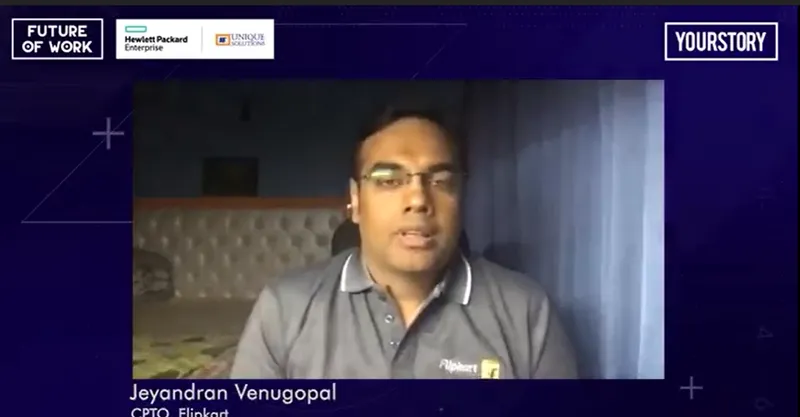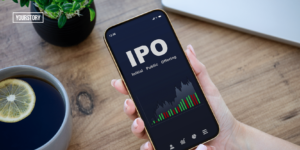India has around 500-600 million monthly active internet users, of which close to 100-120 million access digital commerce or ecommerce, revealing significant headroom for growth.
Wanting to leverage this opportunity, Walmart-owned Flipkart — India’s leading ecommerce marketplace — is making heavy investments into technology to connect with its existing and new customer base.
On Day 2 of Future of Work 2021, Flipkart Chief Product and Technology (CPTO) Jeyandran Venugopal outlined how the ecommerce major is leveraging tech to bring more people to the ecommerce bandwagon.

Jeyandran highlighted that the Indian ecommerce industry is still in its nascency as it accounts for below 10 percent market share of the general commerce industry in the country.
“There is substantial opportunity to bring digital commerce to a much larger chunk of the population. The sheer scale of the potential impact is unprecedented,” said Jeyandran.
Over its 14 years journey, Flipkart has scaled to offer over 150 million products in over 80 categories, serving around 300 million customers.
For Flipkart, technology is the key differentiator, and the ecommerce major is investing significantly to make it much easier for Indian consumers to shop online.
In fact, Flipkart has also been focusing more on vernacular technology. Its needs are completely different from the early adopters, who are typically English speaking and hail from metros or Tier I cities.
“At Flipkart, more than 70 percent of the new users we are acquiring in any given month are from Tier II and beyond cities. A large chunk of them prefer vernacular transactions in the digital platform,” said Jeyandran.
In such a scenario, Flipkart is not only putting out content in their mother tongues but is also making it contextual, which is relatable to such customers.
Jeyandran highlighted that it goes beyond mere translation of the catalogues, which runs into hundreds of thousands on a daily basis. The ecommerce major is leveraging technology to auto-generate these cards without much human intervention.
“It becomes very prohibitive in terms of cost to scale our human workforce to do the translation,” he added.
He said that there is a need to automatically do the rich translation of product reviews without losing the essence of the vernacular language.
The second aspect for consumers in Tier II and beyond locations is the use of voice while interacting on a digital commerce platform. Flipkart has already started working on this.
Flipkart’s CTPO claimed that data science has a big role to play to serve the geocode mapping so that products reach the right individual at the correct destination. This technology is used in Flipkart’s warehouses and fulfilment centres.
“We use fairly complex algorithmic systems at our fulfilment centres as there are millions of packages that need to be sorted,” added Jeyandran. In fact, there is extensive use of robotics at these centres, which helps in reducing errors.
Flipkart is also “experimenting with blockchain technology in the area of grocery,” Jeyandran said.
Moreover, the ecommerce major is also leveraging other new-age technologies, including computer vision, and augmented reality, to create trust and comfort among its consumers.

COVID-19 challenges
The COVID-19 pandemic bought in a humanitarian crisis, but Jeyandran felt people were able to rise above these challenges. “Technology has evolved and actually accelerated a few things. It also helped us learn a lot of new concepts,” he said.
He is confident that the industry as a whole would recover soon as it has already reached the pre-COVID level of business.
“We are looking at how do we accelerate the adoption of ecommerce and bridge the trust deficit. The last few years have been very good, and the industry will see waves of innovation,” he said, adding, “The future is going to be fairly exciting.”
A big shout out to our Future of Work 2021 Co-presenting Sponsors Hewlett Packard Enterprise and Unique Solutions; Digital Excellence Partner, Google Cloud; Associate Sponsor HP and Intel; and Sponsors: Atlassian, Freight Tiger, Archon I Cohesity, TeamViewer, and Pocket Aces.











![Read more about the article [Funding roundup] Swadesh, WonderLend Hubs, Fieldproxy, other early-stage startups raise capital](https://blog.digitalsevaa.com/wp-content/uploads/2022/07/Images51u-1657020995722-300x150.jpg)